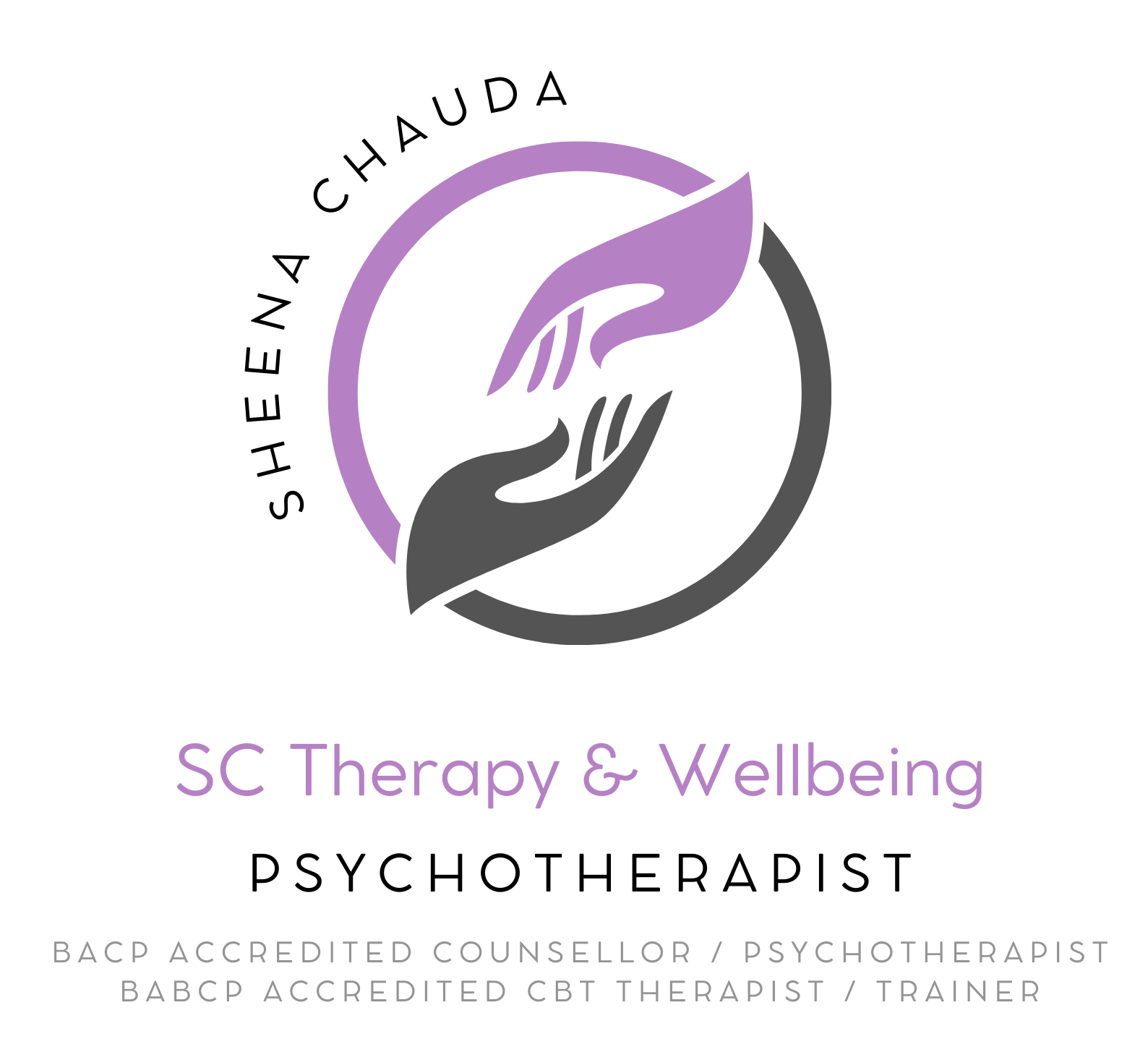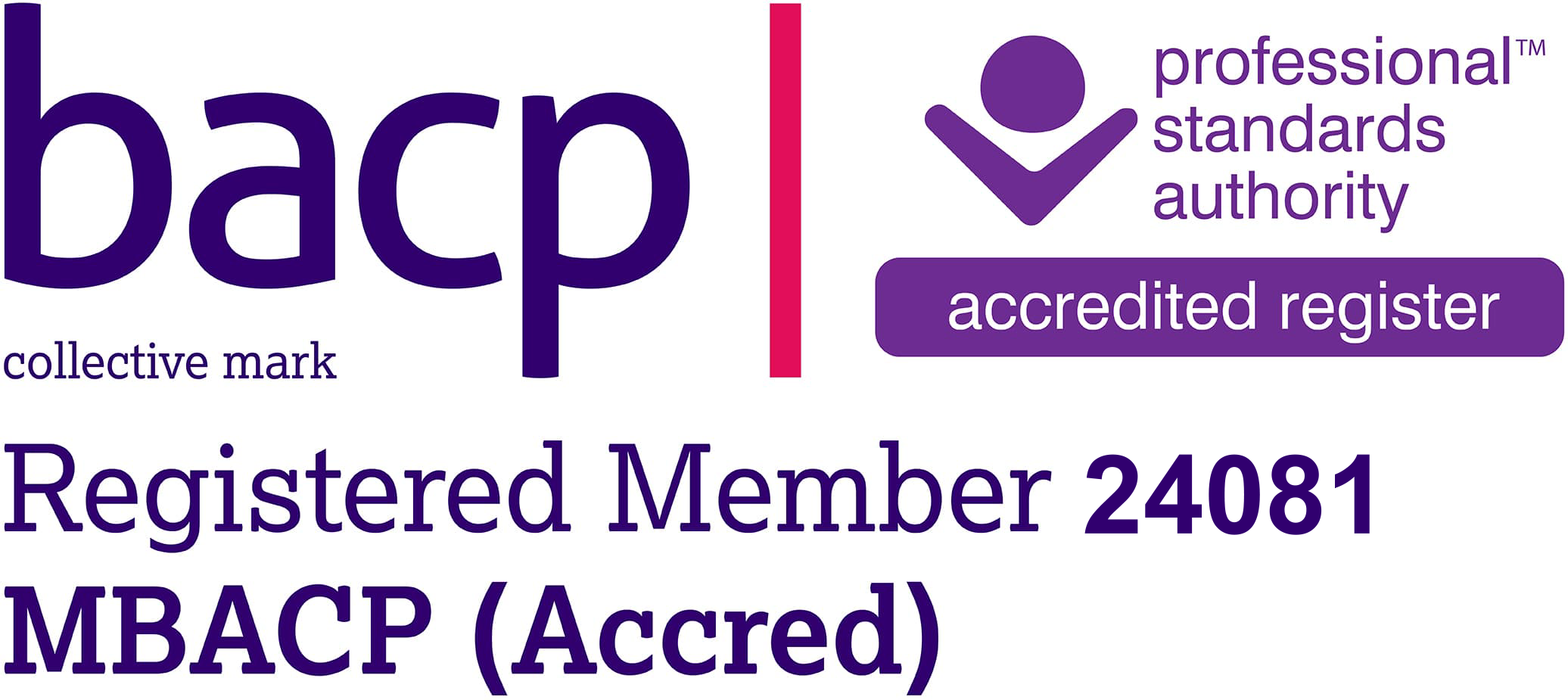How I work
I deliver remote therapy via video and telephone, whichever suits you best.
Covid changed the lives of many people and also shifted the paradigm in making it easier to provide online therapy to clients’. People lead busy lives and often want the convenience of being able to access therapy remotely.
I also deliver Bespoke workshops to organisations in person. This can be Wellbeing workshops, Stress management workshops, sleep workshops, anxiety management workshops - a whole range tailor made to suit your needs.
Presenting difficulties that I work with
Depression
Depression is generally low mood that can last for weeks’ or months’, and can affect day to day functioning. Many different factors can lead to depression, such as stressful events, childhood/adult life experiences, work-related difficulties, and difficulties within relationships.
Symptoms to look out for:
- Withdrawing from others’
- Reduced appetite/comfort eating
- Loss of pleasure and interest in activities
- Struggling with motivation
- Lacking in energy
- Broken and disrupted sleep
- Engaging in unhelpful behaviours such as excessive drinking, drug taking
- Rumination (replaying past events’ in your mind)
- Negative thoughts
GAD (Generalised Anxiety Disorder)
GAD is a specific type of anxiety that is characterised by excessive worry about two or more aspects’ of life (e.g.. relationships, finances, work etc). Sometimes people with symptoms of GAD can be ‘high functioning’ on a day to day basis, and therefore be able to go to work, go about their daily lives etc. Anxiety to a degree is a natural human response, however if it is prolonged and starts to impact on day to day life, it can become a problem. GAD can also be accompanied by avoidance, and can impact on mood if left untreated.
Symptoms to look out for:
- Restlessness and rushing around
- Physical symptoms such as tension, increased heart rate, butterflies in stomach, nausea and sweating
- Intolerance of uncertainty (overplanning, difficulty with decision making, refusing to delegate tasks)
- Feeling overwhelmed
- Procrastination (putting things off)
Health Anxiety
Health anxiety is a specific type of anxiety disorder where individuals’ can spend a lot of time worrying about themselves or others’ being ill or becoming ill. It was previously known as hypochondriasis. Individuals’ that experience health anxiety symptoms may often assume that some general bodily functions are signs of a serious illness e.g. a headache may be interpreted as a brain tumour.
Symptoms to look out for:
- Constant worry about health
- Googling symptoms
- Frequent body checking for rashes, lumps and bumps
- Avoidance of GP visits/hospital visits. Or the opposite – excessive visits
- Reassurance seeking from family and friends’ about health
- Avoidance of exercise, doing activities that may exacerbate perceived symptoms
Agoraphobia
Agoraphobia is an anxiety disorder whereby people experience an overwhelming fear about being in a crowded place. People who experience agoraphobia will generally avoid most situations and may just stay in their homes’. Understandably this can have a significant impact on day to day functioning.
Symptoms to look out for:
- Feeling overwhelmed when leaving the house, and in confined spaces
- Avoidance of public transport
- Worrying about having a panic attack
- Experiencing anxiety that is generally disproportionate to the actual threat that is presented by the feared situation
- Low self-esteem and confidence
- Disturbed sleep
- Withdrawing from others’
Trichotillomania
Trichotillomania is a disorder that falls under the blanket of OCD (Obsessive Compulsive Disorder). It is where an individual recurrently pulls out their hair, which can result in hair loss and bald patches. Hair pulling can occur from any region of the body, such as scalp, eyebrows or pubic region. People that experience trichotillomania symptoms may have made repeated attempts to decrease hairpulling and failed.
Symptoms to look out for:
- Urges to pull hair
- Excessively checking the sites of where hair has been pulled
- Increased anxiety
- Skin picking may also occur as well as hair pulling
Body Dysmorphic Disorder (BDD)
BDD is an anxiety disorder that is related to body image. Individuals’ with symptoms of BDD may experience obsessional worries or concerns about one or more perceived flaws related to physical appearance. These perceived flaws are not visible to others’, or may seem very small.
Symptoms to look out for:
- Spending long periods of time thinking about appearance
- Repeated checking of appearance in mirrors
- Making comparisons to others’ (checking social media frequently can exacerbate this)
- Excessive exercise
- Avoidance of mirrors or reflective surfaces
- Feeling self-conscious
Disordered eating
– Disordered eating tends to include restrictive eating, irregular eating patterns and compulsive eating. Other behaviours that may be present include binge eating and counting calories. People who become highly preoccupied with their eating may use terms such as “clean eating”, “bad foods”, “good foods” or “cheat meal”. They may also be quite preoccupied with body image.
Symptoms to look out for:
- Excessive counting of calories
- Binge eating
- Following fad diets
- Low self-esteem
- Preoccupation with body image
Chronic pain and Long-term conditions
Chronic pain is defined as pain that lasts for 12 weeks’ or longer despite treatment or medication. The pain can have come about despite injury or an operation. A long-term condition or LTC is defined as a condition for which there is no cure, but can be managed by the use of medication and therapy.
Symptoms to look out for:
- Persistent pain
- Fatigue and excessive tiredness
- Negative thought patterns
- Reduced activity levels
- Avoidance
Low self-esteem
low self-esteem generally tends to build up over time. Individuals’ with low self-esteem can often be self-critical and hold negative views about themselves. They may lack confidence, which can often hold them back from trying new things and experiences. Commonly held beliefs in relation to low self-esteem may be “I am worthless”, “I am incompetent”, “I am a failure”.
Symptoms to look out for:
- Self-critical thinking patterns
- Lacking compassion towards self
- People pleasing
- Avoidance
- Not taking risks for fear of failure or not trying new things
Stress
Stress can be defined as a state of worry caused by a difficult situation. Stress is a natural human response, however the way that we respond to situations can have an impact on how stressed we may feel. Individuals’ that experience stress frequently may feel that they do not have helpful coping strategies.
Symptoms to look out for:
- Sleep disturbance
- Low mood
- Worrying excessively
- High expectations of self
- Restlessness
- Struggling to focus and concentrate
PTSD (Post traumatic stress disorder)
PTSD is an anxiety disorder that can be triggered by a distressing or frightening experience, such as a car accident, being in a war, sexual abuse, amongst other distressing events. PTSD symptoms can occur in an individual when the brain has not processed the traumatic event fully.
Symptoms to look out for:
- Flashbacks
- Nightmares
- Avoidance of anything that triggers the traumatic memory
- Irritability
- Withdrawing from others’
- Low mood
- Lack of self-care
- Being hyperalert
Obsessive Compulsive Disorder (OCD)
OCD is an anxiety disorder whereby an individual experiences what are known as intrusive thoughts in connection to harm coming to others’, and fear of contamination. These thoughts can lead to the individual engaging in unhelpful rituals and compulsions in order to reduce the level of distress they experience when they have the thoughts.
Symptoms to look out for:
- Overwhelming feeling about responsibility for others’ and situations
- Excessive checking
- Hoarding
- Counting
- Repetitive movements
- Ordering and arranging
Sleeping difficulties
Sleeping difficulties may occur for a wide variety of reasons. Individuals’ that struggle with their sleep may be experiencing chronic pain, worry a lot at night and have an unhelpful “sleep hygiene” routine.
Symptoms to look out for:
- Increased irritability
- Feeling more anxious
- Struggling to focus and concentrate
- Napping during the day
- Inconsistent sleep pattern
Panic attacks
A panic attack is a short-lived episode of intense anxiety, whereby an individual will experience overwhelming physical symptoms such as increased heart rate, light headedness, stomach churning. The individual will link the physical symptom to a feared catastrophe e.g. heart racing means I am having a heart attack. Panic attacks can lead to avoidance, as the individual will fear that if they experience those physical symptoms, something bad will happen.
Symptoms to look out for:
- Racing heart
- Dizziness
- Choking sensation
- Increased need to urinate or defecate
- Numbness
- Shaking
- Tension
- Sweating
Bereavement
Bereavement is the experience of loss of an individual. Bereavement leads to feeling a sense of grief, and the grieving process and period can be different for everyone.
Assertiveness
Assertiveness is about communicating one’s needs’ in a respectful, direct and open manner. Assertiveness is a skill that everyone can learn. A lack of assertiveness can lead to an individuals’ needs not being met. A lack of assertiveness can also have an impact on relationships and confidence.
Symptoms to look out for when struggling to be assertive:
- People pleasing
- Feeling a sense of resentment
- Feeling self-conscious when talking to others’
- Low self-esteem


